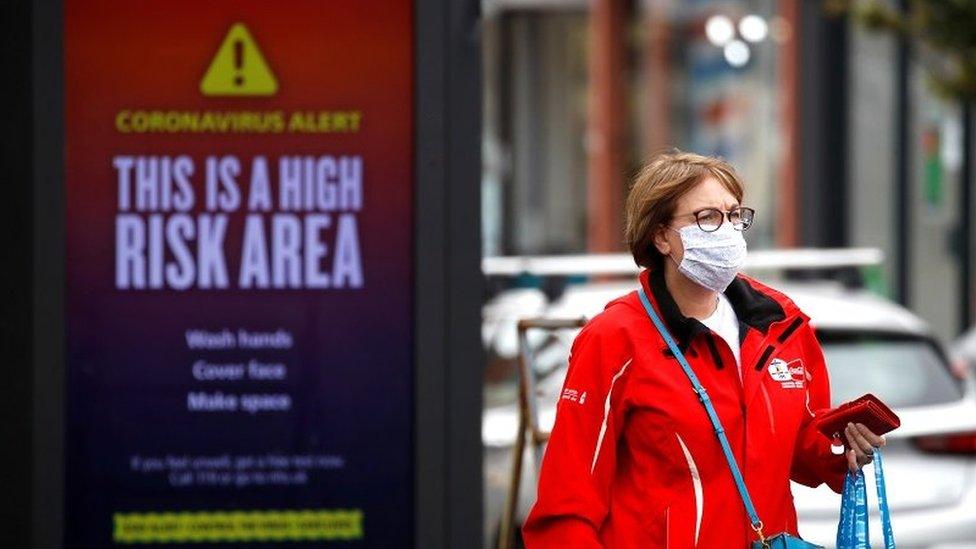Coronavirus: Northern Ireland announces 934 new Covid-19 cases
- Published
- comments
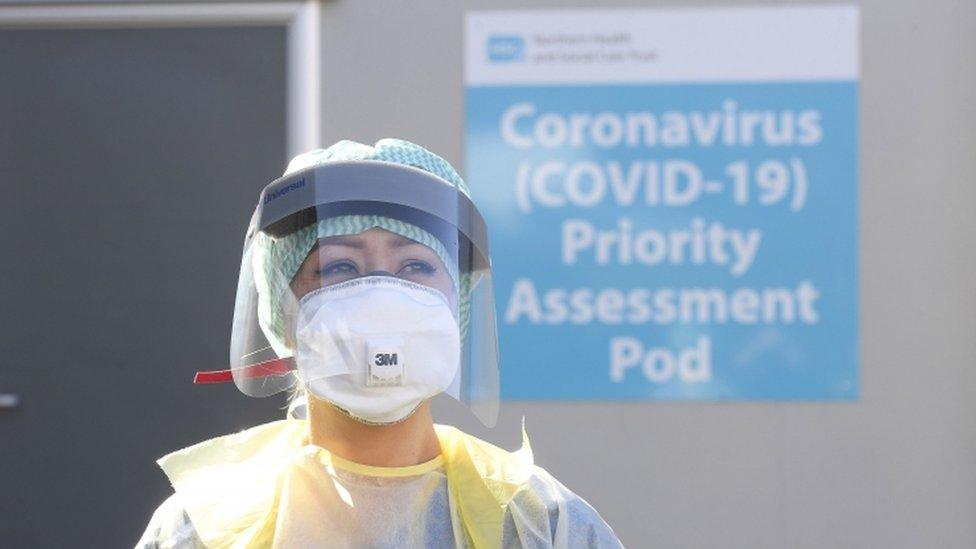
A further 934 cases of Covid-19 in Northern Ireland have been announced by the Department of Health.
That is more than double the previous daily high of 424 on Wednesday.
One further death was recorded in the last 24 hours. The number of hospital inpatients with the virus has dropped from 70 to 65.
Health Minister Robin Swann told BBC News NI the rise in cases meants Belfast's Nightingale hospital may need reactivated within weeks.
'October is Covid winter'
"It is something we thought we would possibly have to do over the winter. It now looks like October is going to be our Covid winter," he said.
Mr Swann said he was "floored" by the figures.
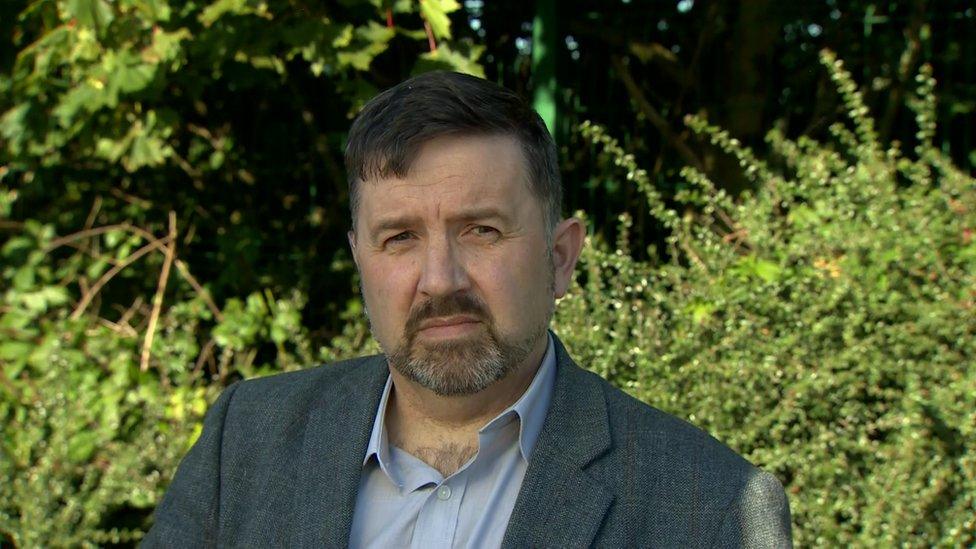
Health Minister Robin Swann said the public need to see the figures as a wake-up call
"I've run out of words to explain how shocked I was when I saw those figures," he said.
"Our chief medical officer and chief scientific advisor were warning that we could get to 1,000 cases per day in two to three weeks, we've got there today."
Mr Swann appealed to the public to see the figures "as a wake up call" and engage with the message from the health department to follow the Covid guidelines.
Circuit breaker
The figures come as Chief Scientific Adviser Prof Ian Young said Northern Ireland may need more than one Covid-19 "circuit breaker" this winter.
A circuit breaker is a lockdown for a short period of time, possibly two weeks, to slow the spread of the virus.
Friday's figures show 201 new cases in the Derry and Strabane council area, 191 in Belfast and 182 in Newry and Mourne.
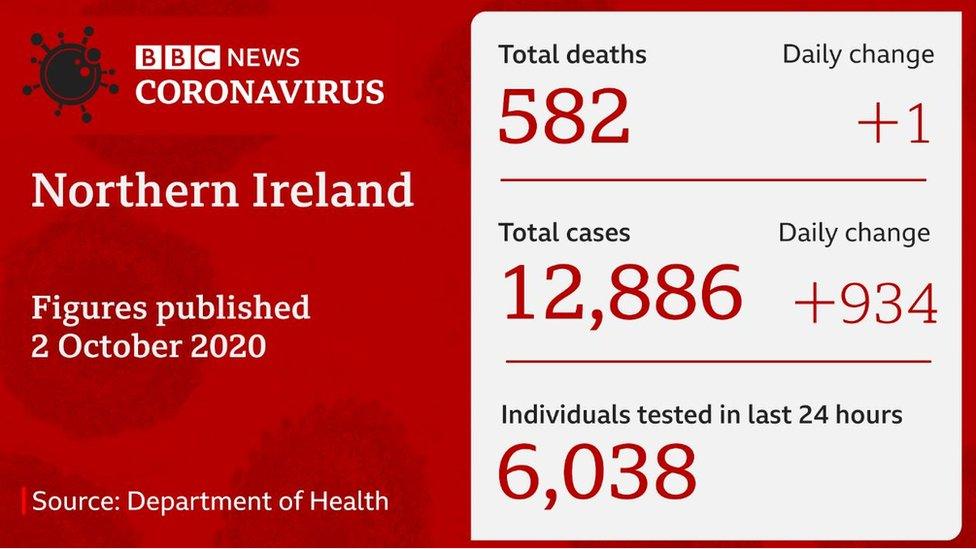
Derry and Strabane now has 422.8 cases per 100,000, Newry and Mourne 213.7, Belfast 161.5 and Northern Ireland as a whole 139.4. Mid and East Antrim now has the lowest rate in NI at 33.2.
The man who died was in a hospital in the Armagh, Banbridge and Craigavon area.

Analysis
By Louise Cullen, health reporter
Another record nobody wanted to break - today, the number of cases recorded is more than double the previous highest daily total.
That means that, in a week, Northern Ireland has recorded more than 2,600 new cases and has now had a total of 12,886 cases overall.
Two hundred and one of those cases were in Derry City and Strabane District Council.
It is now the second highest in the UK for cases per 100,000, based on figures from two days ago (309/100,000) - a time lag Public Health England says is needed for the data to stabilise.
On Friday's figures, it has an average of 422.6/100,000.
The additional restrictions that have been put in place there will need at least a week to have any impact on numbers, and a fortnight to assess the scale of that impact.
One hundred and ninety one cases were confirmed in Belfast and 182 in Newry, Mourne and Down council areas - places that have already caused concern in recent days.
What these confirmed case numbers tell the medical and public health experts is that, in the next fortnight, more people will need hospital treatment for Covid-19.
And more hospital admissions may lead to more deaths.

The Department of Health has now recorded 12,886 positive cases - 2,623 of them in the last week; 6.038 people were tested in the last 24 hours.
The department has recorded 582 Covid-19 related deaths since the pandemic began.
In the Republic of Ireland, 470 new cases of coronavirus were recorded on Friday, bringing the total number of positive cases to 37,063.
One further death from Covid-19 was also recorded in the Republic. The death toll stands at 1,801.
Circuit breaker
Earlier, speaking on the Stephen Nolan Show, Prof Young said Northern Ireland was facing a difficult six months.
Another nine Covid-19 related deaths were registered in the week to 25 September, official figures show.
"I think that there are a number of interventions that the executive will be able to consider to reduce the number of cases and the impact of the epidemic as we go through what's going to be a difficult six months," Prof Young said.
"I think one of those options, and probably one of the most effective, is certainly this idea of a circuit breaker or a relatively short-term lockdown.
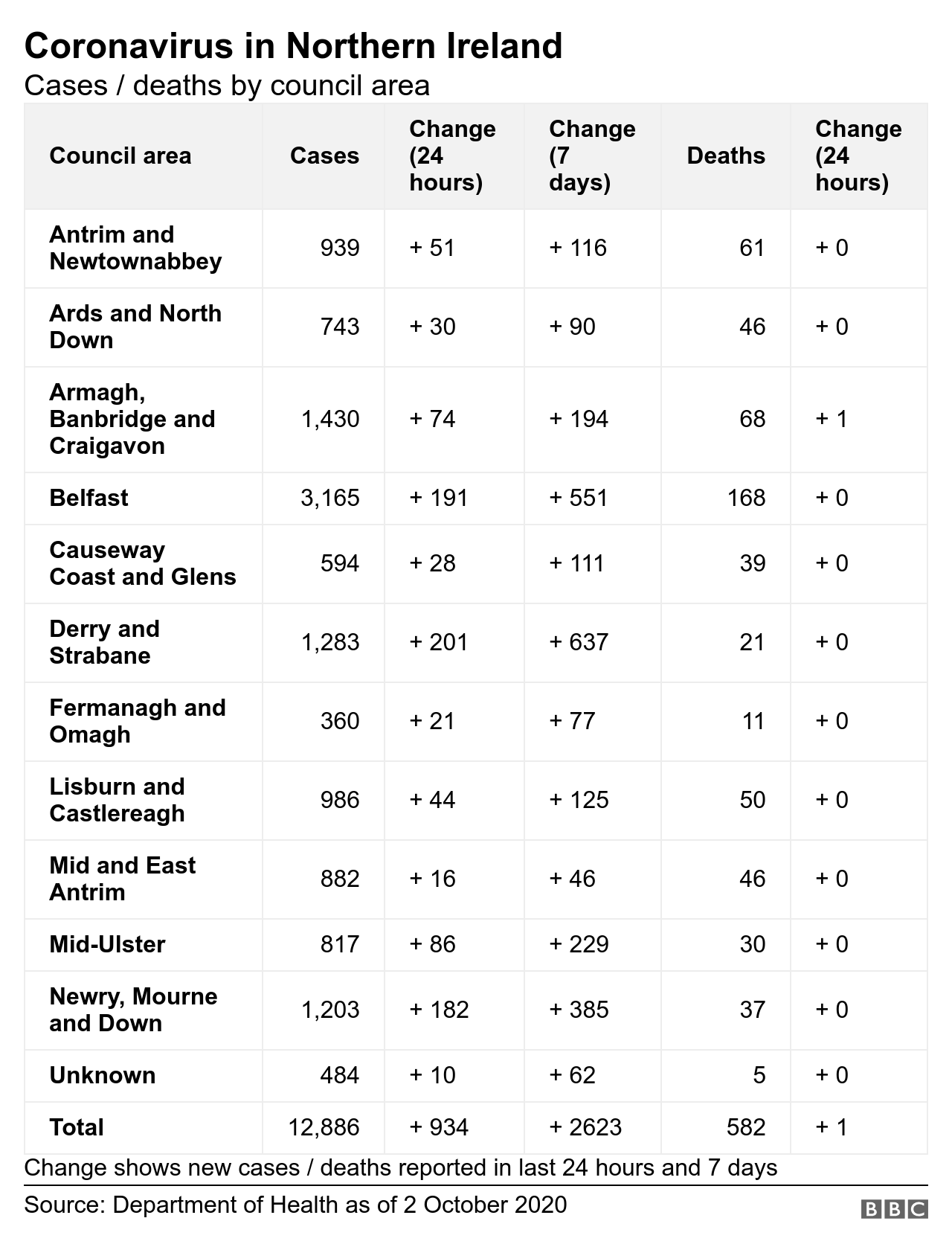
"I don't think that a single period of lockdown or circuit breaker would be sufficient to get us right through the winter."
He added: "I think it would be sensible to plan for the possibility of one or more period of circuit break over the course of this winter."
Prof Young said a wide range of options was being considered in terms of additional measures.
"All of those will be weighed up by the executive alongside consideration of the economic damage of any of the interventions and the societal costs of any of the interventions."
He said while a circuit breaker might be more effective at a time when children were off school, he did not think one would be contemplated at Christmas.
Nisra figures
The number of deaths registered by the NI Statistics and Research Agency (Nisra), is one more than the previous week, according to the latest bulletin.
It counts deaths where the virus is mentioned on the death certificate, and reports 901 deaths up to last Friday.
The Department of Health's daily figure for the same date was 578 - more than 300 lower.
The figures from Nisra show 483 deaths in hospital, including the deaths of 81 people normally resident in care homes.
Taking that figure, and the 356 people who died in care homes, it means care home residents account for almost half of all Covid-19 related deaths (48.5%).
Eight people died in hospices (0.9%) and 54 at residential or other locations (6.0%).
People aged 75 and over account for 79% of all Covid-19 related deaths, with almost a third of those who have died having a council area Belfast address (28.8%).
Excess deaths
The provisional number of all deaths between 18 September and 25 September was 323 - 1 more than in the previous week (322) and 35 more than the five-year average (288).
Those are deaths over and above what would normally be expected at the time of year, averaged over five years.
The agency says 1,216 'excess deaths' have been registered in the past 26 weeks.
House party fines
Meanwhile, the police have said that over the "last short number of weeks" they have issued 450 fines for people breaching regulations on house parties and a further 104 prohibition notices for the same offence.
They have also issued 20 larger fines for people breaking quarantine.
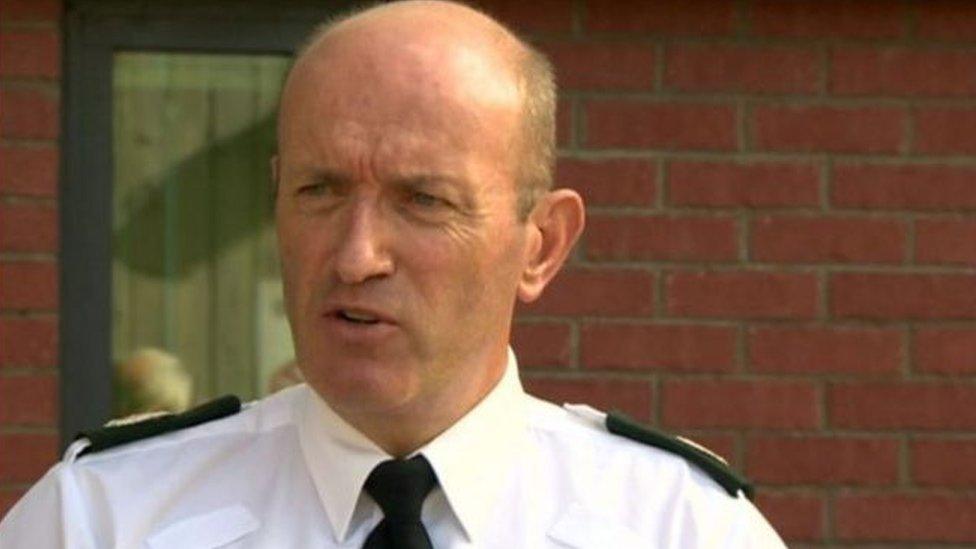
ACC Alan Todd said police would use guidance from health experts to decide what areas to prioritise
ACC Alan Todd said while police have not issued any fines for people not wearing face coverings, they were working with retail premises and public transport on the issue.
He said police would use guidance from health experts to decide what areas to prioritise.
"If the senior health adviser turned around tomorrow and said we've got a real problem with face coverings in retail space, it would become tomorrow's priority for policing," he said.
"I am not averse to issuing fines for people not wearing face coverings and I'm sure as this develops and infection rates rise and priorities change that'll we see some of that coming through.
"But I think that needs to be driven legitimately and proportionately from the medical evidence."
- Published2 October 2020

- Published1 October 2020
